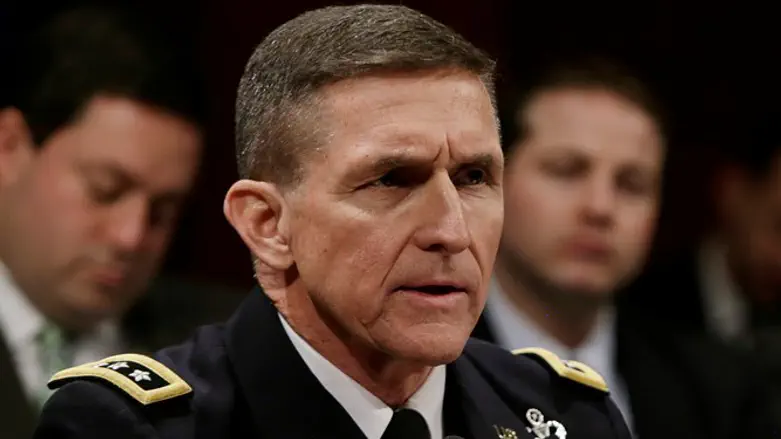
JTA - Evincing strong support for Israel from the start, President Donald Trump did not wait for the inauguration and his then-nominee for National Security Advisor, Michael Flynn, and members of the transition team, worked to defeat a United Nations vote condemning Israeli 'settlements,' according to a new report.
Rather than seeing this effort in positive terms, even though it was doomed, Foreign Policy wrote Friday that in its opinion: “The effort represented a fitful first foray into global diplomacy by Trump’s transition team, bearing hallmarks that have become familiar in the weeks since he took office. Their efforts were marked by a brusque disregard for diplomatic protocol and a hasty pressure campaign that changed few, if any, minds.”
The resolution condemning Israeli building in Judea, Samaria, and eastern Jerusalem passed in the U.N. Security Council in late December by a vote of 14-0, with the United States abstaining. The U.S. had traditionally vetoed such resolutions, but Obama took a last stab at Israel by changing that long term mutual loyalty. Trump condemned the vote at the time, and questioned the efficacy of the United Nations.
“The episode also suggests that Flynn’s unconventional diplomatic activism in the weeks leading up to the inauguration was part of a highly coordinated effort at the highest ranks of the Trump team, including the president-elect, to shape the course of U.S. foreign relations,” according to the report, a thinly veiled allusion to the issues that made Flynn resign.
According to the article, citing an unnamed U.S. official, Trump’s nominee as ambassador to the United Nations, Nikki Haley, tried to reach then-envoy Samantha Power on the day of the vote, calling her office and cell phone in an effort to persuade her to veto the resolution. Power, at the end of her stint in the UN, did not take the call.
Flynn reportedly called foreign ambassadors on the council, including Malaysia, which was one of four countries to bring Resolution 2334 to a vote, according to the report. The Malaysian diplomat did not take Flynn’s call.
A day before the vote, Trump issued a series of tweets displaying his disdain for the Council’s plan. The resolution, Trump said in one tweet, “puts Israel in a very poor negotiating position and is extremely unfair to all Israelis.” After the vote, Trump tweeted: “As to the U.N., things will be different after Jan. 20th.”
Flynn resigned as national security advisor on Feb. 14, after acknowledging that he had misled other administration officials, including Vice President Mike Pence, about a phone call he had with the Russian ambassador in December before Trump assumed office.
The U.S. mission to the United Nations, the State Department, and the National Security Council did not respond to requests for comment on the Foreign Policy story, according to the magazine, nor was the magazine able to secure contact information for Flynn.
During a joint news conference at the White House last week with Israeli Prime Minister Binyamin Netanyahu, Trump appeared to back off from support of a two-state solution and most importantly, give Israel latitude and put the PA in its place. When asked whether he favors a two-state solution or one state, he responded, “I like the one the two parties like … I can live with either one,” a blow to PA aspirations to keep the Palestinian Arab issue one of crucial importance to the US and attempts to keep the two-state paradigm the only suggestion extant.
Trump, pushing a future peace deal, said both Israel and the Palestinian Authority would have to “show some flexibility” and “show that they are willing to make a deal.” He also said he would like to see Israel “hold back on settlements a little bit,” but added “we’re gonna make a deal.”